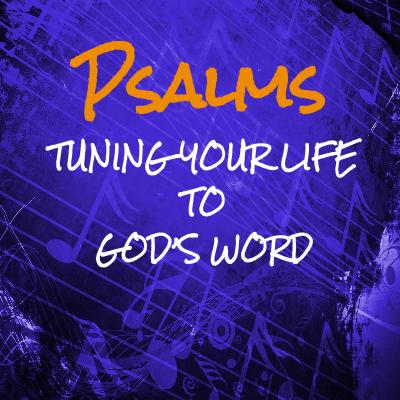Sermon Summary
From Psalm 1, we learn that humanity is divided into two distinct camps: those who are rightly related to God by faith and those who are alienated from Him as a result of their sin and unbelief. We have a choice to follow one of two paths: one leads to a life of blessing; the other to a life of difficulty and judgment. In verse 1, we read that true happiness comes to those who reject worldly wisdom and embrace the wisdom of God’s Word. Deep inside, we all want to be happy. And we can only find happiness by pursuing God, because he is the source of true fulfillment. In other words, happiness, defined as a “blessed life,” is a byproduct of truly pursuing God.
If you want a blessed life, the Psalmist says, then you need to avoid the kind of behaviors and choices that lead to negative consequences and the unhappiness that comes along with them. Hanging out the wrong people is at the top of the list of things to avoid. Christians must be very careful about who they allow into their inner circle of friends. We must be very particular from whom we seek advice. That is why we are commanded to avoid the counsel of the wicked (“wicked” being a broad description of anyone whose spiritual orientation leaves the God of the Bible out). Similarly, we are to avoid the path of sinners. The “path of sinners” suggests ungodly behavior, actions, and practices. And we are certainly not to sit in the seat of scoffers. The “seat of scoffers” implies a kind of belonging. We are not to settle into a group of companions who mock God and those who believe in Him.
So far, we have learned what godly people don’t do. But there is a positive side to their lives. According to verse 2, “… his delight is in the law of the LORD, and in His law he meditates day and night.” The righteous person delights in God’s instruction. He gets his kicks from pondering God’s will in God’s Word. His pleasure is demonstrated not simply by the positive feelings he has about God’s Law, but also by his preoccupation with it. And this meditation finds practical expression in daily application. In other words, it bears positive fruit in his life. The Psalmist goes on to describe this blessing in verse 3: those who follow God’s wisdom will prosper. Actions have consequences whether you believe in God or not. The author’s point is not that the obedient person’s life is free from trouble, but rather that a life of fruitfulness and stability are reliable byproducts of a godly life. Generally if have one, you see the other. What you sow, you reap.
What can a person who cares nothing for God or his Law reasonably expect? Those who reject God’s wisdom will experience his judgment (verse 4). If you want to know the consequences of a life lived apart from God, the Psalmist says, go to the threshing floor where the farmer’s fork throws the grain high up into the air, and watch as the chaff is blown away by the wind. He says, “That will be the fate of the godless.” If the tree planted by streams of water represents fruitfulness and stability, then the chaff represents rootlessness and ruin. This verse prompts us to ask ourselves, while we still have an opportunity to make a course correction, “Am I living my life in a way that pleases God and advances His Kingdom, or am I simply living to advance my own selfish goals?” This is a crucial question with eternal ramifications. And it is to this future destiny that the Psalmist now turns his attention. How we live our lives before God has real, far-reaching consequences. The author goes on to speak of what we would call the “Final Judgment,” the time in the future where each one of us will stand before God and receive our just reward or punishment (verses 5-6). Now this judgment isn’t something that we talk about very much. But its lack of publicity doesn’t diminish its reality. One day we will all stand before God and give an account of our lives. And one thing is clear, the person who has lived his life apart from God will be without excuse, without justification. He will spend eternity apart from God and his people in a place called Hell. Jesus’ teaching on this topic is vivid and clear and terrifying. And it is true.
Psalm 1 tells us that all of us will travel down one of two paths, and those paths will lead to one of two destinies. Verse 6 serves as a kind of summary statement: “For the Lord knows the way of the righteous, but the way of the wicked will perish.”
Did you notice that the first word of this Psalm is “blessed” and the final word is “perish?”?
Those are the options before us. To be blessed or to perish? The choice is yours.
Application / Challenge
Psalm 1 offers only two options: God’s blessing—or perishing. We must choose one or the other. Which one do you choose?


